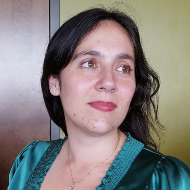In 2017, we have expanded the NCSE Science Booster Club program with volunteer led clubs across the country. We now have clubs up and running not only in Iowa, but also in Nebraska, Tennessee, Virginia, Ohio, Maryland, Indiana, and West Virginia. Washington DC, too! Many of the volunteer club leaders have started to bring activities to large events, involving thousands of people. Combined, the clubs are working with an average of 2,500 people every week. Pretty awesome- in 2016, we were excited when our average reached 2,000 people a month.
Now that we are working with so many people in so many places, we have a lot of stories to tell. Every couple of weeks I’ll be sharing them with you through a new regular blog feature: SBC Voices. So far, I have to say, I’ve found reports very heartening. There are, of course, people and institutions that are reluctant to engage with climate change or evolution, on the whole we have found that our nation’s capacity for civil discourse is greater than we may have been led to expect, and that people are much more interested in learning and engaging with science–even on potentially contentious topics–than many believe.
We’ve had lots of examples of that in just the past few weeks. Science Booster Clubs across the country have spent the summer engaging with the public at county fairs and community festivals. As we’ve expanded into states like Tennessee and Virginia, and into the western half of Iowa, we’re working with increasingly socially, religiously, and politically conservative populations.
Unsurprisingly, this means we’re meeting more creationists. Cue conflict and arguments, right? Wrong.
This summer we distributed a fun activity, “Genetics and Evolution”, to all of our SBC leaders. This activity let people use (and eat) different colored Starbursts to model changes in allele frequency in populations over time. We also supplied leaders with PTC (a chemical that tastes bitter to some and tasteless to others, a characteristic controlled largely by a single dominant allele) strips so that participants could find out if they were among the ~75% of the population who are “tasters” or the 25% who are “nontasters”, making genetic variation personal and tangible (taste-able?).
These engaging, hands-on activities definitely drew in people who might not otherwise have wanted to engage with evolution. Several of our leaders have reported long conversations with creationist families.
NCSE community organizer Brian Pinney had an interesting encounter with a creationist home schooling mother at an event in Des Moines. The woman was initially a little concerned about having her children participate in the activity, circling our booth a few times, but decided to let her family join in after she saw how other people were enjoying the activity. She spoke with Brian for quite a long time about the challenge of providing her children with a quality science education at home. Interestingly, although she strongly identified as a creationist, she did want her children to be able to learn about evolution. She wanted them to understand concepts, and to be scientifically and culturally literate so they would not be limited in their future educations. But she had concerns that she and her children would experience negativity and rejection if they tried to learn about these concepts because of their religious beliefs and religious identification.
Similarly, our volunteer leader Robert Marken, Jr. met a creationist family at a Fourth of July community event in Virginia. In this case, the family leader was a grandmother. She and Robert had an extensive and civil discussion about how she was a creationist and did not believe in evolution, but that she thought it was important for her grandchildren to be exposed to different viewpoints. She wanted them to be able to learn about science and see scientific evidence for themselves. Again, this family had been cautious about engaging in the activity, but our open, friendly, positive approach allowed them to access our information about evolution.
These are just a couple of examples of children and adults who have not only gotten a chance to learn about evolution from the SBC program, but who have connected with people who accept evolution in a positive way. These social experiences are powerful. It suggests that there are a lot of people out there who are open to learning about evolution but aren’t sure it is safe. With the SBC program, we are learning how to make science a place where everyone can play.
Are you intrigued? Would you like to bring this kind of opportunity to your community? We have some slots open for new volunteer leaders and are interviewing potential leaders now. We prefer leaders to have identified at least one or two people who will volunteer with them. Our early experiences suggest that it is more important for leaders to have strong local social networks than deep scientific knowledge. Don’t feel that you can’t participate if you aren’t a scientist! If that describes you, don’t worry- we’ll help you get up to speed on the content you need.
Get in touch with me at schoerning @ ncse.com if you’d like to learn more.

